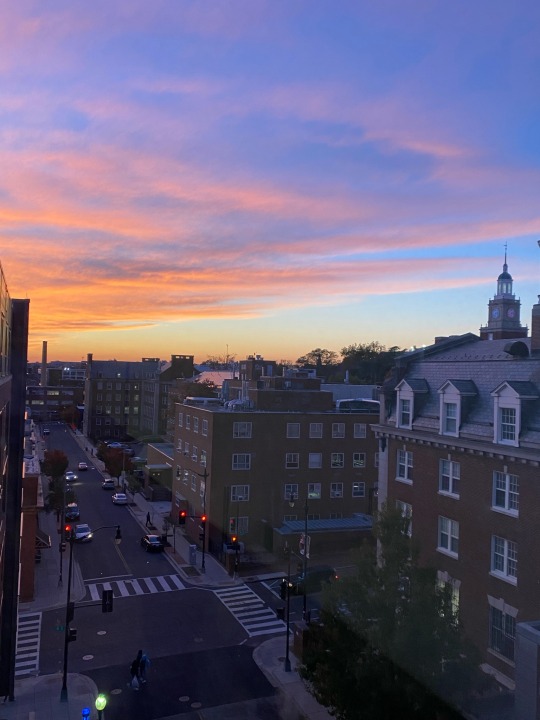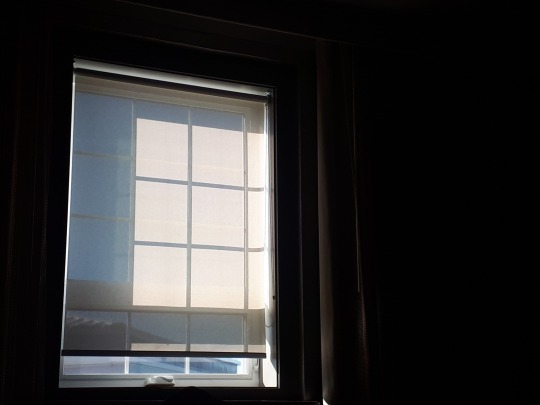Text
Conclusion + Sources

My name is Amir Ali. I am 18-years-old, and I want to live beyond 23. I want to learn my mother tongues, and so much more, before I might die at 27. I want to know what the sand feels like on the west coast, I want to boast about the superiority of the east coast, and I want to touch the waters of our seven seas—I’d settle for the five great lakes—before my body falls six feet under at 28. I want God to love me, even if my family and religion can’t do the same, and I want to fulfill my five Islamic pillars before I meet Him at 31. I am more than a deviant, a ‘Devil worshipper’, a terrorist, a sodomist, a psychological disorder, a ‘random security check’ with TSA, a ‘fake woman’ or ‘fake man’, or ‘dirty monkey’. I am 18-years-old and I want to be able to rule my life for however many seconds I might have left before I die the same fate my Muslim siblings and my LGBT+ siblings died, who I hope rest in power and in heaven. I am my myriad of identities, and I will push and struggle to live in this unlivable world. At least, until my last breath.
Sources: https://docs.google.com/document/d/1CotFD2yWfhDIv-umHpsDH8nHLkGSTcadUOolvtfzmSQ/edit?usp=sharing.
Sources for any images used can be found at the bottom of each post. Also, links to every auditory piece of media used in this syllabus are embedded in each auditory post.
0 notes
Text
“allthefeels” by emawk

Similar to Endless, allthefeels carries me to an alternate universe of freedom. One where I can confidently share these hidden parts of my identity with my Islamic community, where I finally have a home and a romantic love that is exposed to the world, and I am safe. Mellow beats bring about a bittersweet happiness to me, one which only highlights the dichotomy between my current state of acceptance but invisibility and my desired state to transition and fully embrace love. Fear, sorrow, and wistfulness overwhelms me through his raspy voice in this short EP.
Image: (Genius).
0 notes
Text
“Endless” by Frank Ocean

Echoes of a life I could have lived ring through each song on this 2016 visual album. Each crackle in his voice tugs at a tangled heart string I forgot about, reminding me of the warmth of my biological family, begging me to work out the knots of whatever trauma I have so I can return to my Islamic community and family with pride. The haunting chords that ring on his piano instrumentals, low vocals lingering like an unignorable echo, all push me to want to continue acting as a woman, straight, devoutly Muslim, diligently Indian so I can maintain some kind of peace.
Despite these feelings of guilt and uncomfortability that always wash up when I play any song from this album, it represents an immortal struggle in my life. I remind myself of James Baldwin’s words as I fight this inner urge to fool myself into heteronormativity: “I know that self-delusion… is a price no writer can afford” (Baldwin 12). I may be a writer in education, of horrifically amateur poetry and spoken word, but self-delusion is still a price I cannot afford. Yet I will never fully be comfortable with any of my identities, and I will always feel like I am betraying someone.
Image: (The Verge).
0 notes
Text
“Fallout” by KRANE

Living in a blaringly hateful religious house meant that each corner I physically turned to left me with no escape. When I was not hearing my mother’s mouth spill with hatred for ‘the homosexuals’ or watching my father’s grimace as he mocked me for being a ‘crossdresser’ when wearing sweatpants to dinner, I was faced with my older siblings’ myriad of slurs of the day. When my escape couldn’t be physical, trapped in a house that was never home, I escaped to my personally crafted soundscape of tinnitus-inducing electronic and trap music, with KRANE as one of my main playlist dictators.
Fallout provided me with eerie beats that transported me to a world with no identity crises, pounding remixed instrumentals against my ears to drown out any noise that could possibly slip through my headphones. Ultimately, KRANE’s music allowed for me to indulge in my destructive anger without a map of scars, and soon would transport me to channel my rage into equally powerful written pieces of poetry.
Image: (KRANE; Bandcamp).
0 notes
Text
“32 Levels (Deluxe)” by Clams Casino

Just like KRANE’s haunting melodies, 32 Levels provides a cathartic release from my anger, guilt, and grief about venturing down this path to define my identity. When I am drowning in Qur’anic verses of my eternal damnation or frustration with my community, this album grounds me with crashing and speedily rising tempos and stirring vocals.
Image: (Amazon).
0 notes
Text
𝘚𝘈𝘞𝘈𝘠𝘈𝘔𝘈 (2020) by Rina Sawayama
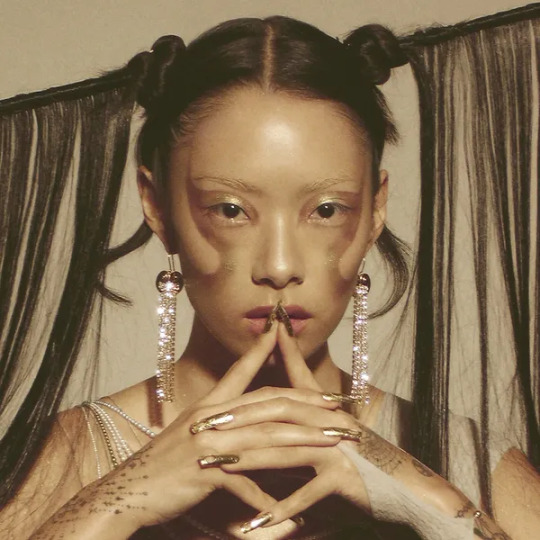
SAWAYAMA by Rina Sawayama is a musical novel of the Japanese-British singer’s frustrations with the world (capitalism, the climate crisis), to understanding family and immigrant experiences, and reconciling with her pansexuality (Genius). Through powerful melodies, breathtaking vocals, and resonating lyrics, Sawayama’s experiences harmonize with mine to connect me to this album deeply.
The guilt and acknowledgement of intergenerational trauma always stops me from withdrawing from my family, no matter how physically or verbally abusive things get, and this is reflected in the opening track, “Dynasty” (Genius). “Comme Des Garçons (Like The Boys)” and “Chosen Family” perfectly illustrate my journey of finding self-worth and confidence in masculinity and femininity as non-binary, and my equally winding journey of finding a family to share my identity, happiness, and unconditional love with. Ultimately, our stories of LGBT+ immigrant children intertwine, strengthening my love for Rina’s music and her story.
Image: (Pitchfork).
1 note
·
View note
Text
“When I Say That We Are All Teen Girls” by Olivia Gatwood

Full video here: https://www.youtube.com/watch?v=MHaCKwYCFZs
With a powerful voice, imagery, and strong, relatable anecdotes, Olivia Gatwood paints a picture of shared human struggle through the teen girl perspective. A shattering description of love that fits the life of an ‘unlovable’ non-binary bisexual Muslim, Gatwood illustrates: “What is more teen girl than not being loved, but wanting it so badly that you accept the smallest crumb, and call yourself full?”.
When you’re one slip up away from being irredeemable and unlovable in the eyes of your friends and family, the smallest droplet of affection feels like an ocean. Gatwood ultimately captures a large struggle among LGBT+ people after truly finding identity: the struggle in restoring your self-importance, sense of safety, and worth for unconditional, warm, platonic and romantic love.
Image: (Button Poetry).
1 note
·
View note
Text
𝘋𝘦𝘢𝘥 𝘗𝘰𝘦𝘵𝘴 𝘚𝘰𝘤𝘪𝘦𝘵𝘺 (1989) Dir. Peter Weir

Jittery and doe-eyed at age eleven to see Robin Williams on screen, the movie Dead Poets Society was one of my first pieces of media that brought me tumbling to the truth of my gender and sexual identity. This movie enlightened me to the world of poetry, the power of words, and pushed me to explore myself through literature—as seen in my literary section, I soon found a global community within words to accept me.
On the other hand, the movie taught me the power and ease of acting, something I would later employ in my life upon realizing my true identity. I performed femininity to ease my parents’ hearts, I performed my prayers for God, I acted out a heterosexual story to convince my friends and family of the life they already painted for me. And so far, it has worked well. However, I feel the toll it’s taken on me as I sit 470 miles away from home, where I’ll have to go back to acting again. Neil and I both reflect a struggle to find home in a homophobic world, and a desire to act out a life locked away from us.
Image: (fromfilms).
0 notes
Text
“Death as intimacy, death as beauty”

From left to right: Ivan the Terrible and His Son Ivan (1885) by Ilya Repin; Dante and Virgil (1850) by William Bouguereau; Untitled by Henrikaau
This new perspective of death beyond grief and loss is what has allowed me to accept my new identity and the downfalls that will come with it. The embracing of my new labels meant watching the death of past me, withering away slowly over the years as I carve that old girl’s place six feet under in silence. My partial emotional detachment from my family meant killing the part of my heart that would internalize their homophobic and transphobic comments, the part that cried at the thought of seeing my family’s reaction if the truth came out.
These three images, riddled with religious imagery and familial loss, highlight these emotions. Like Dante and Virgil, I stand witness to my own damnation. As Ivan the Terrible, I hold the death of my past self and my dead heart in my arms with feigned shock and sadness in my eyes. As the people of Henrikauu’s painting, I am finally willing to embrace love—bisexual love, non-binary love, transgender love—with recklessness, danger, and self-destruction in mind. I count the days when I can experience the all-consuming emotions I missed out in young teenagehood as fully evolved me.
Images: (Pinterest).
1 note
·
View note
Text
“Optimism as Cultural Rebellion” by Matthew Stone

As described in ‘Paris is Burning’, our white-centric society, and my cultural and religious communities, have often villainized the idea of being LGBT+, reducing us to lust-driven less-than-human individuals. What is meant to accompany this in us is self-hatred, invisibility, or our permanent disappearance from this world. At the age of eighteen, I now realize that my anger and hatred towards them is not completely revolutionary: rather, these are the emotions they want me to bear as they wait for me to exit this world, full of hatred for my existence and breeding more anger in my community. Optimism is cultural rebellion. It is revolutionary. Anger is not immortal, but the positive experiences we inflict upon one another can be so through oral and physical history. My happiness in accepting my identity will keep me living and will keep us flourishing.
Image: (Stone; Tumblr).
0 notes
Text
𝘗𝘢𝘳𝘪𝘴 𝘐𝘴 𝘉𝘶𝘳𝘯𝘪𝘯𝘨 (1990) Dir. Jenny Livingston

Paris is Burning is a documentary set in New York City, following the peak of ballroom culture among Black and Latin gay and transgender communities. The film follows the lives of many different individuals by exploring race, class, gender, and sexuality relating to their struggles and celebrations in life.
When I was in my early teens, finally accepting my LGBT+ identities, I found myself stuck in a place of happiness for solving this confusing piece of my identity puzzle while in a deep depressive state over the rejection I would face. I would be villainized by my family, possibly kicked out or worse, most of my friends and community members would never see me the same or give me a second look. I thought I would never find a space of acceptance to fully grow into my newly defined me. Paris is Burning showed me another side, one of success, to life after acceptance of myself. I saw gay and transgender people of colour in a bustling community where they could fully express themselves through ballroom culture, while dealing with a hateful society, and that gave me hope for my future life. Despite the HIV-AIDS crisis and rampant homophobia and transphobia in society, life was nowhere near perfect—but I’ve come to understand and accept that it never will be for people like me.
I will cling to the simple words that brand my identity, ones that allow me access to a community, ones of movement and dance and vivid expression in a world that tries to silence us. As a community so strongly shaped by Black LGBT+ activists, how we move and perform is a literacy practice I adapted with ease and support. As Kirkland explains in his essay “The Skin We Ink”, this literacy practice affords me agency over my perception in public spaces, and how I can place myself and my meaning within a larger human context (Kirkland 158). With this literacy practice of ballroom culture in hand, I will grow in the cracks and crevices of our society, let my best straight and female portrait shine in the sunlight, and let my roots breath when I am safe.
Image: (Dazed).
1 note
·
View note
Text
𝘋𝘢𝘳𝘪𝘶𝘴 𝘵𝘩𝘦 𝘎𝘳𝘦𝘢𝘵 𝘐𝘴 𝘕𝘰𝘵 𝘖𝘬𝘢𝘺 by Adib Khorram

Darius The Great Is Not Okay is a novel about American Darius, born from an Iranian mother and Swedish father. This Bildungsroman is centered around the loss of Darius’s grandfather as he tries to grow into his Iranian identity, cope with his depression, and confront his gay identity.
For the past decade, my life has been shockingly exhausting from my subjective child perspective: watching my first grandfather die on my birthday, my second when I was finally easing into my identities, and slowly losing more family members to dementia. Seeing my family leave this world physically and mentally meant that my culture was leaving me too, and we would soon have little connection to our motherland as the majority of us live here in North America. Seeing this same struggle with culture, loss, and unwellness with Darius allowed me to reconcile with the feelings that I kept bottled away for years. Ultimately, Darius The Great Is Not Okay allowed me to accept that culture enriches with each generation, rather than disappearing, and that my gender and sexual identity is not contradictory of my religion or ethnicity.
Image: (Iravani).
3 notes
·
View notes
Text
“Ishtar Awakens in Chicago” by Mohja Kahf
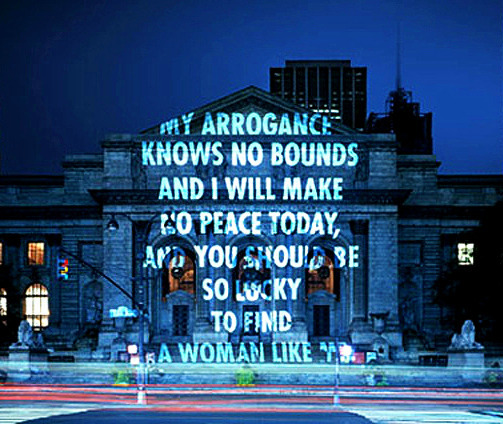
Full poem: https://wiredthezine.wordpress.com/2019/01/20/ishtar-awakens-in-chicago/
As a Muslim born to immigrant parents in Canada, this poem from Mohja Kahf stood with me deeply. When I am in my mother’s home in India, I am too ‘Western’ to speak our language or learn our history, yet when I am here, I am too dark and Muslim to fit in the Western world. My Urdu and Arabic are disgraceful, my English coated in an accent I never knew existed when faced with white critics, and yet I am still forced to carry the ideals of woman, Muslim, Indian, and Canadian with me. The courage to embrace the emotions of arrogance, to admit the stupidly painful struggle of adapting to two cultures, to speak of the poison and death women implicitly carry, to sharpen words of violence into freedom, all capture my struggle with my identities. They are my call to action, my mantra to keep pushing and burn these cross-hemisphere stereotypes. This poem has made me the powerful female-presenting Muslim I am today.
Image: (Holzer).
3 notes
·
View notes
Text
“A Study In Trans Masculinity” by Keaton St. James
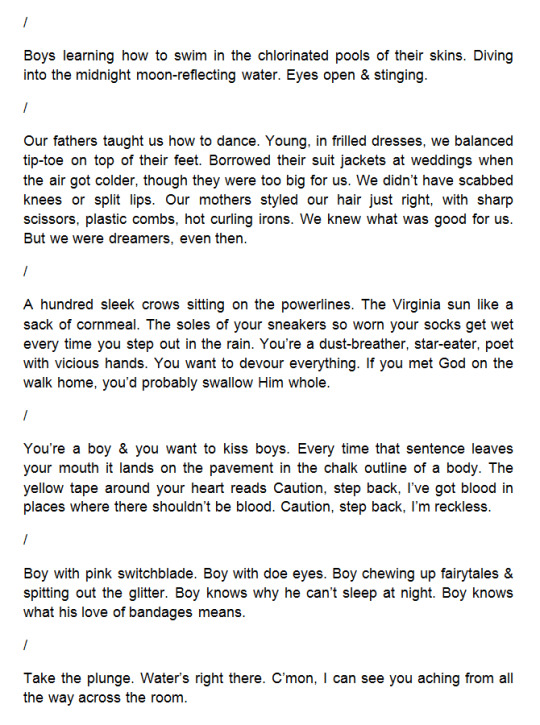
Sharp, brisk words that sculpt a picture of an aching childhood living the wrong life, this poem by Keaton St. James resonates with me deeply. A childhood growing up as a girl, especially one where you don’t want to be one, is one filled with rage, frustration, pain, and impulsivity. When I was seven, I burned two of my dresses in hopes my mother would stop buying them for me, or that she would give the rest to my cousins, or any other solution that would get the scratching, stupidly frilly fabric away from me. When I was nine, I threatened my sister that I would chop off my hair in retaliation for something, hoping to make everyone stop their overly feminine stereotypes from imprinting on me. All I was reminded of was long, girly locks that needed to be braided. Told that men with straight hair don’t have them braided, that’s a sin, men don’t have this long hair, men shouldn’t do this to their hair, a girl wouldn’t do this. And when I was fourteen and fighting back the daily urge to grab the razor my mom first used to shave my unwomanly mustache to cut my throat, this poem provided me with a sense of comfort and community.
This poem is trans masculinity translated into a universal experience, a form I could relate to. It was this poem, in all its complexity and simplicity, that would push me to find a community of others struggling with the same emotions, and those celebrating their achievements as trans masculine individuals across the world. St. James’s words, among many other pieces of work, motivated me to keep living so that one day, I may live my truth the way I see fit too, whether trans masculine or any other identity that I don.
20 notes
·
View notes

